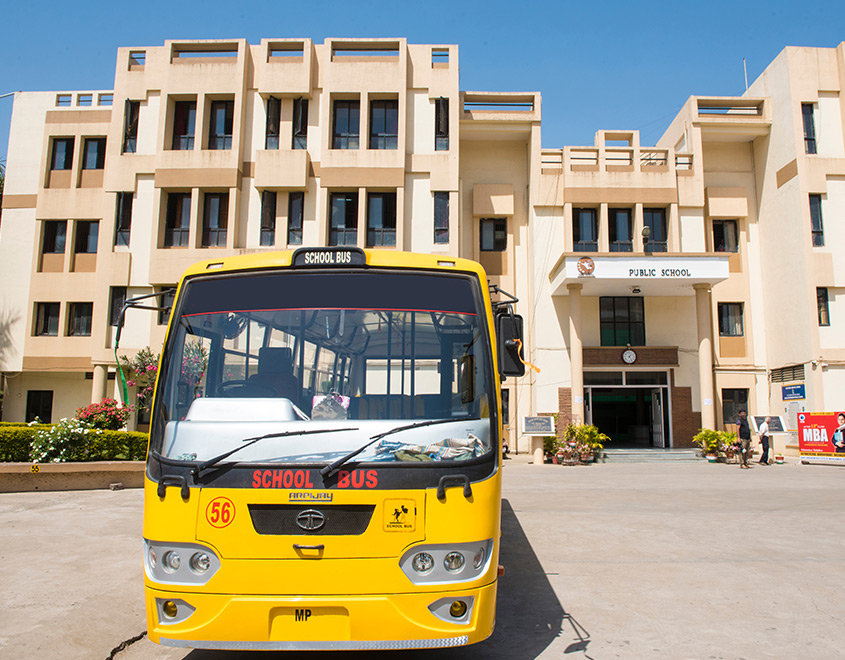
Introduction
A school infrastructure loan helps educational institutions to build or upgrade their facilities. This includes classrooms, libraries, laboratories and other essential infrastructure. However before approving such loans lenders consider applicant’s credit scores first. A good credit score in India can improve the chances of approval and ensures better loan terms with any school loan.
Almost 25% of schools in India lack proper infrastructure which impacts the quality of education. Many schools turn to school loans for improvements to their facilities. However, a credit score check plays a crucial role in securing a loan. This blog will discuss the importance of credit scores, minimum requirements, and their impact on loan terms to help school leaders borrow a loan without facing any hassles.
Understanding Credit Scores
A credit score is a numerical indicator of an individual’s or institution’s creditworthiness, based on factors like repayment history, credit utilization ratio, outstanding debts, length of credit history, and new credit applications.
Timely payments and low credit usage can improve the score, while missed payments and high debts can lower it. A longer credit history with consistent repayments boosts the score, while frequent loan applications in a short period may signal financial strain, negatively impacting the score.
Lenders assess credit scores to determine the borrower’s ability to repay the loan on time. A higher credit score increases trust, leading to better loan terms and easier approval. Schools should conduct a regular credit score check to monitor their financial health.
Minimum Credit Score Requirements
A good credit score in India helps in securing better loan terms. While some lenders may offer lower scores for loans and have better credit scores, they often charge higher interest rates or require additional guarantees such as collateral or a co-applicant with a more recent credit score.
The required credit score varies based on the type of lender:
- Banks: Generally require approval with a score of 700 or higher.
- Non-Banking Financial Companies (NBFCs): May approve loans with a score of 650 or higher.
- Government Schemes: It may offer loans with lower credit score requirements but eligibility depends on other financial factors such as income, previous loan records and repayment capacity.
How Credit Score Affects Loan Terms
Credit scores play a significant role in determining loan terms. A higher score often results in lower interest rates, access to larger loan amounts and more flexible repayment options such as longer tenures with less EMIs. Additional evidence indicates that individuals with good credit scores usually experience faster loan approvals as lenders view them as a safe borrower. On the other hand, a lower credit score can lead to higher interest rates and limited loan options, making it harder to secure favorable terms. A credit score check helps you stay informed about your financial health and take steps to improve it if needed.
For example, a school with a 750 credit score received a loan at 9% interest rate while another school with 600 score secured the same loan at 12%. This shows the financial impact of creditworthiness. A higher credit score translates into falling down-front borrowing costs.
How to Check Credit Scores for Free
Schools and institutions can perform a credit score check free online through various platforms such as Paisabazar, Gpay, etc. In addition, several financial institutions and the Credit Commission of India (CRI)-regulated credit bureaus on its website offer free credit reports once a year. Regular monitoring ensures that schools remain eligible for a school infrastructure loan.
How Do I Improve Credit Score for Loans Approval?
If your credit score is low then consider the following steps to improve it:
- Avoid defaults and late payments to pay existing loans on time as these negatively impact the score.
- Reduce your credit utilization by repaying high-interest debts first.
- Regularly check your credit score report to identify and correct any errors.
- Maintain a Mix of Credit Types: Having both secured (e.g., home loans) and unsecured loans can improve your score.
- Too many inquiries could reduce the score as it signals financial instability.
- If struggling with repaying your debts consider negotiating with lenders for revised terms rather than defaulting.
A good credit score for loan approval also depends on responsible financial management. School districts should run a credit score check every few months to stay on track.
For example a school with 750 credit scores received a loan with 9% interest rate while another school with 600 scores secured the same loan at 12%. This illustrates the financial impact of creditworthiness where a higher credit score translates into lower overall borrowing costs.
Alternative Funding Options for Schools with Low Credit Scores
You can explore other funding options like:
1. Government Loan Schemes
Some government programs offer loans with relaxed credit requirements, particularly for schools in rural or underdeveloped areas. One of such popular loan schemes is the PM Shri Scheme. Launched in September 2022 the System aims to improve the quality of education and infrastructure in schools. The initiative focuses on developing exemplary schools that showcase the implementation of the 2020 National Education Policy with an emphasis on environmental sustainability and modern educational practices.
2. Educational Foundations and NGOs
Some organizations support school infrastructure development especially for schools catering to underprivileged students. The Higher Education Financing Agency (HEFA), established in 2017-18 supports the development of building and infrastructure in higher education institutions. As of March 2024, loans worth Rs 39,720 crore were sanctioned for 103 institutions, with 64% allocated to 22 IITs and 12 AIIMS.
3. NBFC Funding
Investors may provide funding in exchange for long-term partnerships. Schools can seek funding from education-focused investment firms or philanthropic donors. Organizations like Varthana have been a prominent support factor for school finance in India. These organizations have been instrumental in providing school infrastructure loans and improving overall educational facilities.
4. Crowdfunding and Donations
Schools can reach out to alumni, parents, and local communities for support through crowdfunding platforms or direct donations. Platforms like Milaap enable individuals and organizations to start fundraisers for various causes, including education. Milaap reports that over 908,000 fundraisers have been initiated, raising more than 29 lakh, with 1 crore+ donations.
Conclusion
A good credit score in India is essential for securing a school infrastructure loan on favorable terms. Schools should focus on maintaining a strong financial record and regularly performing a credit score check to improve their chances of loan approval. If the credit score is low, alternative funding options can be explored. By adopting good financial practices and strategic planning, schools can enhance their creditworthiness and ensure smooth loan approval for better infrastructure development. If you are a school leader looking for financial support, opt for NBFCs like Varthana that offer loans with flexible EMIs, collateral options, quick disbursement, and more.






Social